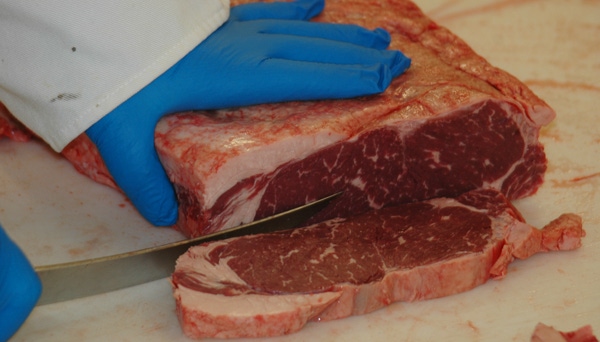Better Beef Sales: Beef Up Knowledge At The Meat Case
NCBA and Beef Checkoff partner with Merck Animal Health to launch new online retail-training program.
February 1, 2012

The National Cattlemen's Beef Association (NCBA) and the Beef Checkoff Program partnered with Merck Animal Health to launch Better Beef Sales, a new web-based retail training program to help boost knowledge about today’s beef and how it’s produced.
These organizations recognized the need for more training of meat-counter employees after Merck Animal Health conducted a series of consumer panels. The panels found that consumers identify the staff behind the counter as experts. Carrie Thomas, account manager for food chain affairs for Merck Animal Health, said the need for training was quickly confirmed during retailer discussions.
“We conducted four panels in two cities. One of the key take away messages from those meetings was consumers still identify the person in the “white coat” behind the meat counter — the ‘butcher’ — as the beef expert,” said Thomas. “And, we want them to be beef experts. To do that, we need to arm them with information about today’s beef supply and how it’s produced.”
Consumer decisions about the products they buy are now far more complex than they were in the recent past. Some consumers take into account how animals were raised, sustainability, animal welfare and a whole host of practices employed by cattle-farm families and ranchers. Questions on those topics aren’t always easily addressed by the individuals responsible for putting beef on people’s plates — retail meat counter employees. This new initiative is intended to bridge the knowledge gap between the consumer and their food. Retail employees can play a critical role in bridging that gap.
Better Beef Sales education program consists of a series of six web-based training modules for the retail meat counter employees on the front lines of consumer marketing. Topics covered in the videos include: types and quality of beef offered today; sustainability of today’s beef; animal welfare practices; beef-improvement technologies; and ways retailers can add value to the meat case.
“As cattle numbers continue to decrease and retail beef supplies become tighter, it’s going to take more effort to keep beef center of the plate,” said Thomas. “We want to make sure retail employees and consumers understand how their beef is produced and how these wholesome, quality products end up on our dinner tables.”
To learn more about the Better Beef Sales retail education program, visit beefretail.org.
You May Also Like



